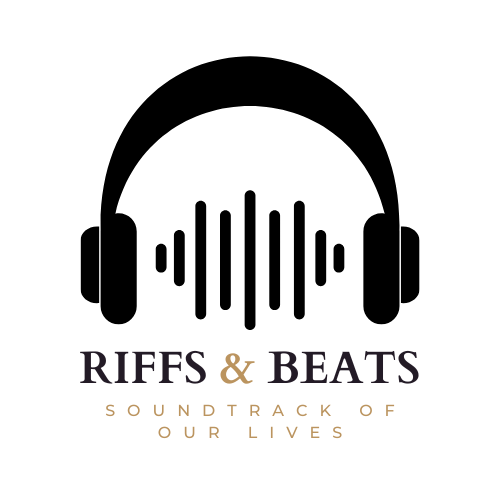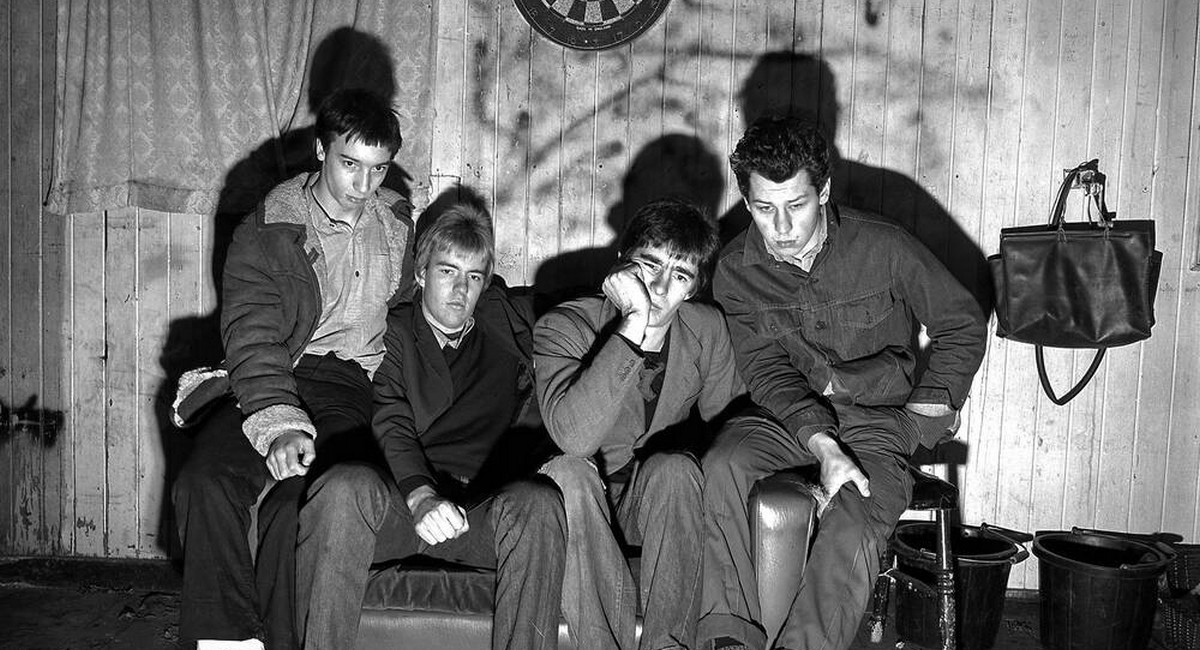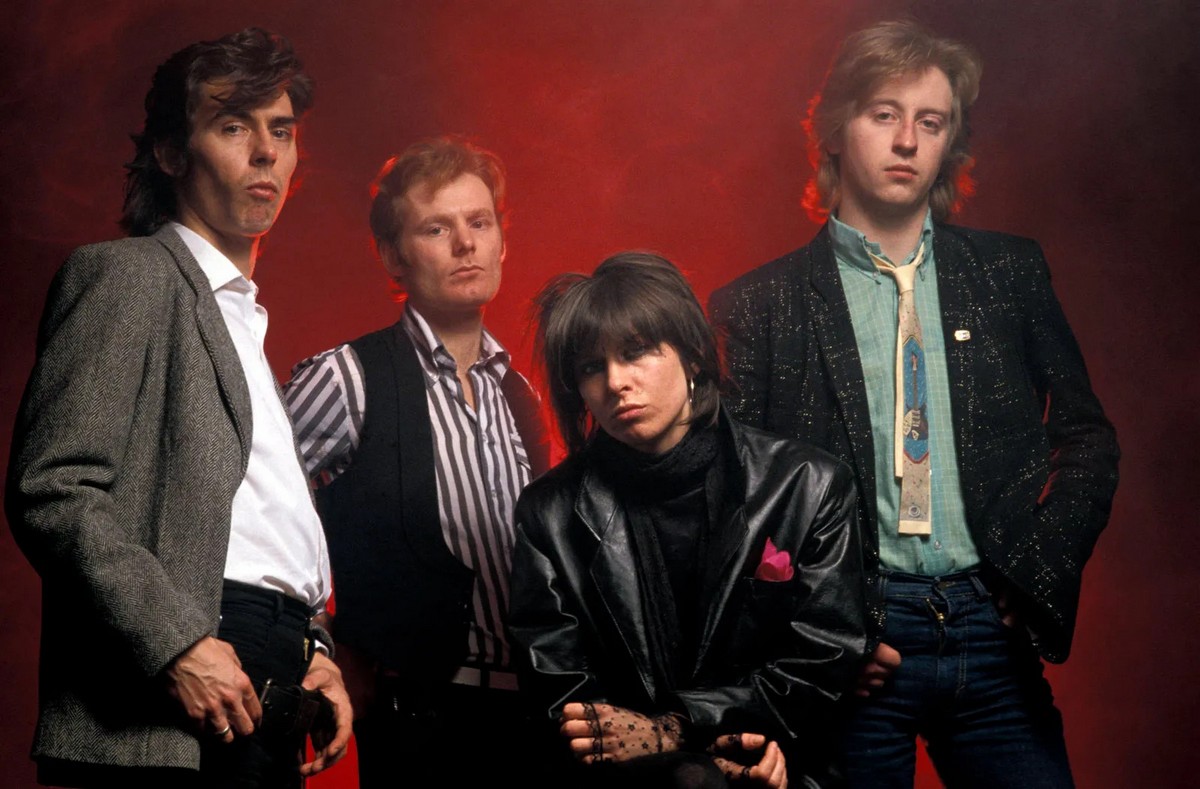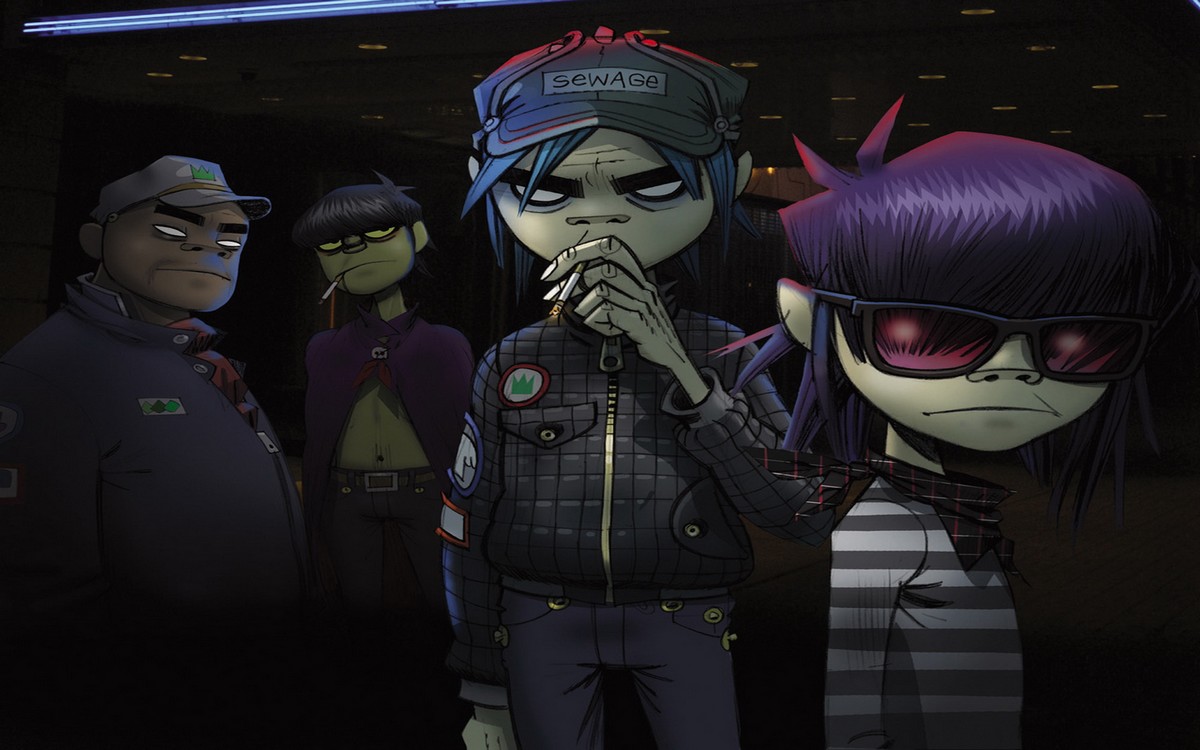The love song as political weapon
The bass announces, it declares. And from there, Damaged Goods unspools like a manifesto with a backbeat, equal parts lust and Lenin. Though it sounded unlike anything else on it, it was the song that launched Gang of Four onto the post-punk scene in 1978. This was punk reading Foucault while forcing you onto the dance floor, not punk spitting in your face.
The friction between Damaged Goods, between body and mind, groove and detachment, seduction and disillusionment, makes it so electrifying. Andy Gill’s guitar slashes, not strokes—staccato shards of metal sliding over Dave Allen’s funk-infused bassline. And Jon King’s vocals? Flat, indifferent, detached, as though he is battling every impulse the beat is drawing out of him. It’s both pick-up line and post-breakup analysis, a love song fed through a shredder: your kiss so sweet, your sweat so sour.
Gang of Four were actually dissecting instruments rather than only playing them. Inspired as much by Situationism and radical politics as they were by James Brown and dub, their idea was to subvert everything: melody, desire, capitalism. Arguing that they were bourgeois indulgences, Gill famously refused to perform guitar solos. Instead, he armed negative space by leaving gaps and silences that felt louder than the choruses of most bands.
Damaged Goods, the band’s 1978 debut EP, caused an immediate stir, a post-punk political manifesto which raised itself leagues above the now-traditional railing against unemployment and the government, set to a jerking, irregular funk soundtrack characterized by two, even three, voices working in strict counterpoint.
(Dave Thomson, Backbeat, 2000)
Damaged Goods was not intended to chart. It was published on Fast Product, a little Scottish independent label more concerned with revolution than income. College radio picked it up, critics raved, and Gang of Four were suddenly touring with Pere Ubu and impacting a generation that hadn’t even plugged in yet, even though it caught fire anyway. It was rock music you could not passively consume, dance music you could not completely dance to. It gave you something to consider. You started twinging.
From the angular aggro-funk of Franz Ferdinand to the jagged pop of Bloc Party, the legacy of Damaged Goods is everywhere. No one, however, ever reproduced the medical heat of the original. It is the sound of desire meeting theory, of intellectualized and commercialized dirty sheets. Damaged Goods eventually transcends a breakup song. It’s a criticism of all that enables breakups—and popular music on them. And still it cuts like wire.





